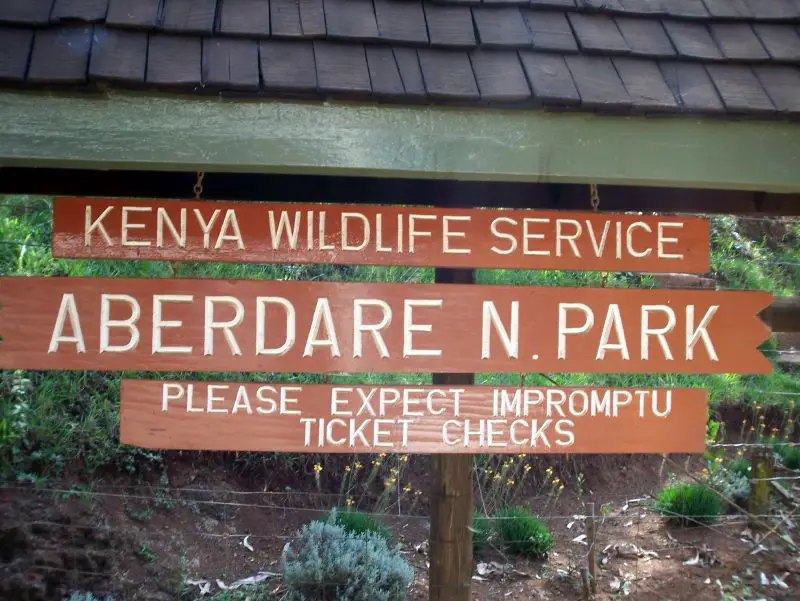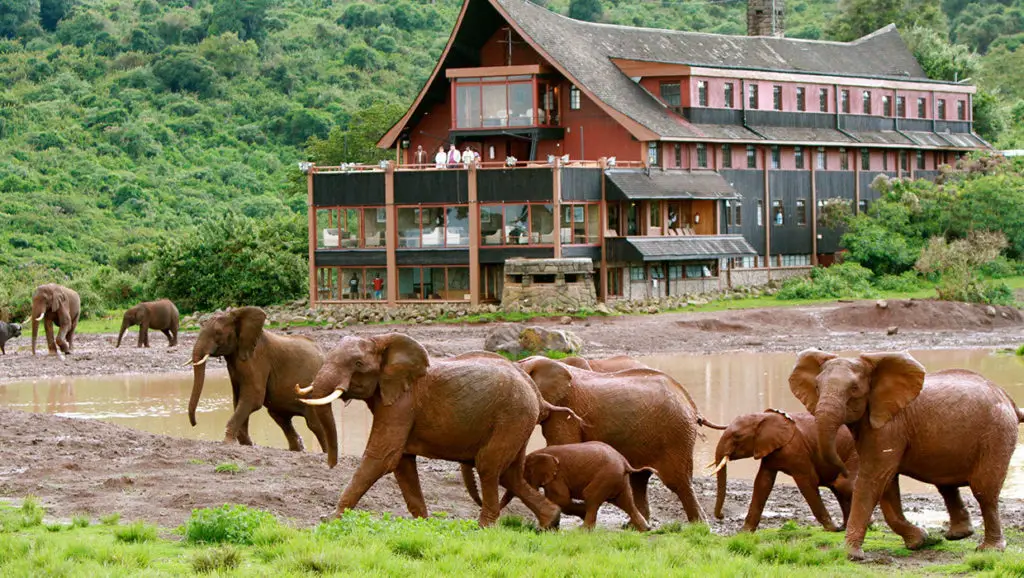Tourism in Bungoma Town, Kenya, is an emerging sector with significant potential for growth. While not traditionally known as a major tourist destination, Bungoma offers a unique blend of cultural, natural, and agricultural attractions that appeal to both domestic and international visitors.
The town’s strategic location in western Kenya, combined with its rich Luhya culture and proximity to natural landmarks, positions it as an up-and-coming destination for those seeking off-the-beaten-path experiences in Kenya.
What are the main tourist attractions in Bungoma Town?
Bungoma Town and its surrounding areas offer several attractions:
- Sang’alo Hills: Scenic beauty and hiking opportunities
- Nabuyole Falls: A picturesque waterfall on the Nzoia River
- Chetambe Fort: Historical site with cultural significance
- Bukusu Cultural Center: Showcasing local traditions and artifacts
- Kaberua Hot Springs: Natural hot springs with therapeutic properties
- Agricultural tours: Exploring local farms and agricultural practices
- Urban attractions: Modern shopping centers and local markets
What is the current state of tourism infrastructure in Bungoma?
Bungoma’s tourism infrastructure is developing:
- Accommodation: A mix of budget hotels and mid-range lodges
- Transportation: Improving road networks, but limited public transport options
- Tour operators: Few local operators, mostly based in larger cities
- Tourist information: Limited official tourist information centers
- Restaurants: Growing number of eateries offering local and international cuisine
While basic infrastructure exists, there’s room for significant improvement to meet international tourism standards.
How does Bungoma’s tourism compare to other Kenyan destinations?
Comparison of Bungoma with other Kenyan tourist destinations:
| Aspect | Bungoma | Nairobi | Mombasa |
|---|---|---|---|
| Main Attractions | Cultural, Natural | Urban, Wildlife | Beaches, Historical |
| Tourist Numbers | Low | High | High |
| Infrastructure | Developing | Well-developed | Well-developed |
| International Recognition | Low | High | High |
| Tourism Experience | Off-the-beaten-path | Diverse, Urban | Coastal, Resort-style |
Bungoma offers a more authentic, less commercialized experience compared to major Kenyan tourist hubs.
What types of tourism are popular in Bungoma?
Bungoma caters to several types of tourism:
- Cultural tourism: Exploring Luhya traditions and heritage
- Ecotourism: Nature walks, bird watching, and conservation activities
- Agritourism: Visits to local farms and agricultural processing centers
- Adventure tourism: Hiking, rock climbing, and waterfall exploration
- Educational tourism: Study tours and volunteer opportunities
- Business tourism: Conferences and meetings in local venues
What role does cultural tourism play in Bungoma?
Cultural tourism is a significant aspect of Bungoma’s tourism offerings:
- Showcases Luhya traditions, music, and dance
- Promotes visits to traditional villages and cultural centers
- Highlights local crafts and artisanal products
- Features cultural festivals and events throughout the year
- Offers opportunities for cultural exchange between visitors and locals
How does the local community benefit from tourism in Bungoma?
Tourism benefits the local community in several ways:
- Employment opportunities in hospitality and related sectors
- Income generation through sale of crafts and local products
- Cultural preservation and pride in local heritage
- Infrastructure improvements that benefit both tourists and residents
- Educational opportunities through cultural exchange
What challenges does Bungoma face in developing its tourism sector?
Bungoma faces several challenges in developing its tourism sector:
- Limited international recognition as a tourist destination
- Underdeveloped tourism infrastructure and services
- Lack of coordinated marketing efforts
- Competition from more established Kenyan tourist destinations
- Need for skilled personnel in the hospitality industry
- Balancing tourism development with environmental conservation
What initiatives are being taken to promote tourism in Bungoma?
Several initiatives are underway to promote tourism in Bungoma:
- Development of a county tourism policy
- Investment in infrastructure improvements
- Capacity building programs for local tourism stakeholders
- Marketing campaigns targeting domestic and regional tourists
- Collaboration with national tourism bodies for wider promotion
- Encouragement of community-based tourism projects
What is the economic impact of tourism on Bungoma?
While still a developing sector, tourism has a growing economic impact on Bungoma:
- Contributes to local GDP, though exact figures are limited
- Creates direct and indirect employment opportunities
- Stimulates growth in related sectors like transportation and retail
- Attracts investments in hospitality and tourism infrastructure
- Promotes the development of small and medium enterprises
The full economic potential of tourism in Bungoma is yet to be realized.
What unique experiences can tourists expect in Bungoma?
Tourists visiting Bungoma can expect several unique experiences:
- Participation in traditional Luhya ceremonies and rituals
- Exploration of lesser-known natural attractions
- Hands-on agricultural experiences in local farms
- Interaction with friendly and welcoming local communities
- Authentic cultural immersion away from mass tourism
- Witnessing the blend of traditional and modern Kenyan life
How accessible is Bungoma for tourists?
Bungoma’s accessibility for tourists is improving:
- Road connections: Good road links to major cities like Kisumu and Eldoret
- Air travel: Nearest airport is Kisumu International Airport, about 105 km away
- Public transport: Available but may not meet international tourist standards
- Car hire: Limited options available locally
- Guided tours: Increasingly available, often arranged through hotels
While not as easily accessible as major tourist hubs, Bungoma is reachable with some planning.
What is the best time to visit Bungoma for tourism?
The best time to visit Bungoma depends on personal preferences:
- Dry season (December to February): Ideal for outdoor activities
- Rainy seasons (March-May, October-November): Lush landscapes but potential travel challenges
- Cultural events: Throughout the year, with major festivals typically in December
Year-round visits are possible, but the dry season offers more comfortable travel conditions.
How does ecotourism feature in Bungoma’s tourism offerings?
Ecotourism is an emerging focus in Bungoma:
- Nature walks and hikes in surrounding hills and forests
- Bird watching opportunities in diverse habitats
- Conservation education programs at local sites
- Sustainable agritourism experiences
- Community-based ecotourism initiatives
There’s potential for further development of ecotourism products and services.
What accommodation options are available for tourists in Bungoma?
Accommodation options in Bungoma include:
- Budget hotels: Basic amenities, suitable for backpackers
- Mid-range lodges: Comfortable facilities with local character
- Guesthouses: Family-run options offering a homely experience
- Few high-end options: Limited luxury accommodations available
- Camping sites: In development, particularly near natural attractions
The range of options is expanding, but still limited compared to major tourist destinations.
How does Bungoma’s tourism sector address sustainability?
Sustainability in Bungoma’s tourism sector is addressed through:
- Promotion of eco-friendly practices in hotels and lodges
- Community involvement in tourism development and benefits
- Conservation efforts tied to tourism activities
- Emphasis on cultural preservation and authentic experiences
- Initiatives to reduce the environmental impact of tourism
There’s growing awareness of the need for sustainable tourism practices.
What role do local tour operators play in Bungoma’s tourism?
Local tour operators in Bungoma:
- Provide guided tours of cultural and natural attractions
- Offer customized itineraries for visitors
- Act as liaisons between tourists and local communities
- Promote lesser-known attractions and experiences
- Contribute to the local economy through employment and partnerships
The number and professionalism of local operators are gradually increasing.
How does Bungoma’s tourism integrate with its agricultural sector?
Bungoma’s tourism sector integrates with agriculture through:
- Farm tours showcasing local crops and farming methods
- Agritourism experiences like coffee or tea plantation visits
- Culinary tourism featuring local agricultural products
- Educational programs on sustainable farming practices
- Farmers’ markets and agricultural fairs attracting tourists
This integration provides unique experiences and supports local farmers.
What future developments are planned for tourism in Bungoma?
Future developments for tourism in Bungoma include:
- Infrastructure improvements, including better road networks
- Development of more diverse accommodation options
- Creation of a dedicated tourism information center
- Enhanced marketing efforts at national and international levels
- Training programs to improve local tourism service quality
- Development of new tourist attractions and experiences
These plans aim to position Bungoma as a more prominent tourist destination in Kenya.
In conclusion, tourism in Bungoma Town, Kenya, is an emerging sector with significant potential for growth. While currently offering a more off-the-beaten-path experience compared to Kenya’s major tourist destinations, Bungoma’s unique blend of cultural, natural, and agricultural attractions provides a foundation for sustainable tourism development.
As infrastructure improves and marketing efforts increase, Bungoma has the opportunity to carve out a niche in Kenya’s tourism landscape, offering authentic experiences that showcase the rich heritage and natural beauty of western Kenya.
The challenge lies in balancing tourism development with environmental conservation and cultural preservation, ensuring that the growth of this sector benefits the local community while maintaining the unique character that makes Bungoma an appealing destination for adventurous and culturally curious travelers.



